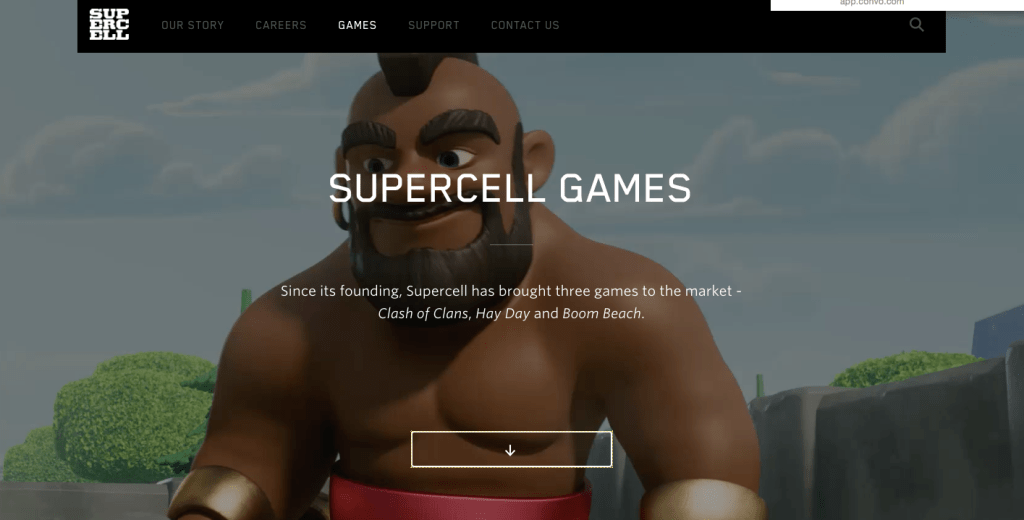China’s Internet giant Tencent has been expanding its international reach in areas like games and advertising, and as part of that, the company is picking up its dealmaking in Europe. The Wall Street Journal is reporting that the owner of the popular WeChat messaging platform is in early talks to buy a majority stake in Supercell — the mobile gaming phenomenon based out of Finland that is behind Clash of Clans — from current majority shareholder Softbank.
On top of this, in the coming weeks, TechCrunch has learned that Tencent plans to announce marketing and advertising partnerships with French ad giant Publicis and luxury goods conglomerate LVMH.
Tencent, Softbank and Supercell are not commenting on the WSJ story. In response to our questions they respectively responded with similar wording: “We decline to comment on market rumours,” “We decline to comment on speculation,” and “We don’t comment on market rumors or speculation.” Supercell’s valuation last year was believed to be over $5 billion.
The other two partnerships are expected to be revealed at different events in France in June. LVMH is expected to announce a joint business partnership with Tencent during the Cannes Lions media conference that month. The Publicis agreement will see Tencent become a global media partner to the ad company, with the news going public during Viva Technology, a conference organised by Publicis and Les Echos, at the end of June.
Tencent’s interest in both mobile games and advertising could be traced back to what’s performing best at the company at the moment. Last quarter, Tencent reported a record profit of 9.18 billion yuan ($1.4 billion), boosted in part by mobile games and advertising, which respectively saw sales up by 16% and 43%. Given that the company is reportedly negotiating a $4 billion loan for acquisitions, you could see how these might be areas it could try to tap.
Buying a stake in Supercell would give Tencent a larger foothold into the mobile games market, and provide it with a complement to games that derive revenues from ads or paid downloads. Tencent’s other holdings in games include Glu Mobile (14.6%), League of Legends maker Riot Games (full control as of December 2015), and Miniclip, which was Tencent’s first gaming investment in Europe (undisclosed percentage, made in February 2015).
A deal with Tencent could also prove to be a big boost to Supercell in China. Supercell has always been free and makes money through in-app purchases of in-game extras, That business posted earnings (Ebitda) of €848 million on revenues of €2.11 billion in 2015. Tencent, meanwhile, is building out a large payments business, which already holds some 200 million payment cards in its database: giving people a seamless integration to make in-app purchases in Supercell could lead to a big boom for the business in the country.
But it’s a not a certainty that a deal will go through. The WSJ notes that conversations between Tencent and Softbank are at an early stage, and there might be others interested in acquiring its Supercell stake, such as Tencent rival Alibaba (which counts Softbank as an investor) partnering with Giant Interactive.
Or it might not sell at all: the WSJ notes that selling Supercell is part of a wider strategy from Softbank to review its games portfolio, but as with the Supercell story, Softbank has not commented on this, either.
Softbank made its initial investment in Supercell in 2013, taking a 51% stake for $1.53 billion in a partnership with GungHo. Then in June, 2015, Softbank upped its stake to 73% and became its sole external shareholder (the original founders and Supercell keeping the rest). Through all of this, Supercell has been guaranteed complete autonomy under Softbank, so it would be interesting to see whether any ownership shift to another strategic buyer would keep Supercell’s existing business model in place. That, too, could end up being a deciding factor in a deal.
Whether or not ads ever make their way to properties that are decided ad-free today, Tencent’s bigger business — which is largely based in China and includes not only WeChat, but the popular QQ Internet portal and IM messaging service, games, payments and more — has a large advertising component. Tencent’s leading position in digital services makes it an attractive partner for companies that want to grow their business in that market. It’s not clear what Tencent would do with Publicis, but as one template, it already works with companies like Dentsu and WPP to help expand their reach and dataset in China.
As for LVMH, it’s not clear if a deal would be focused just on advertising on Tencent properties or something more involved, since Tencent does have other holdings in fashion. Most notably, in January it merged its online fashion portal Meilishuo with rival Mogujie to create a company valued at $3 billion.































Comment